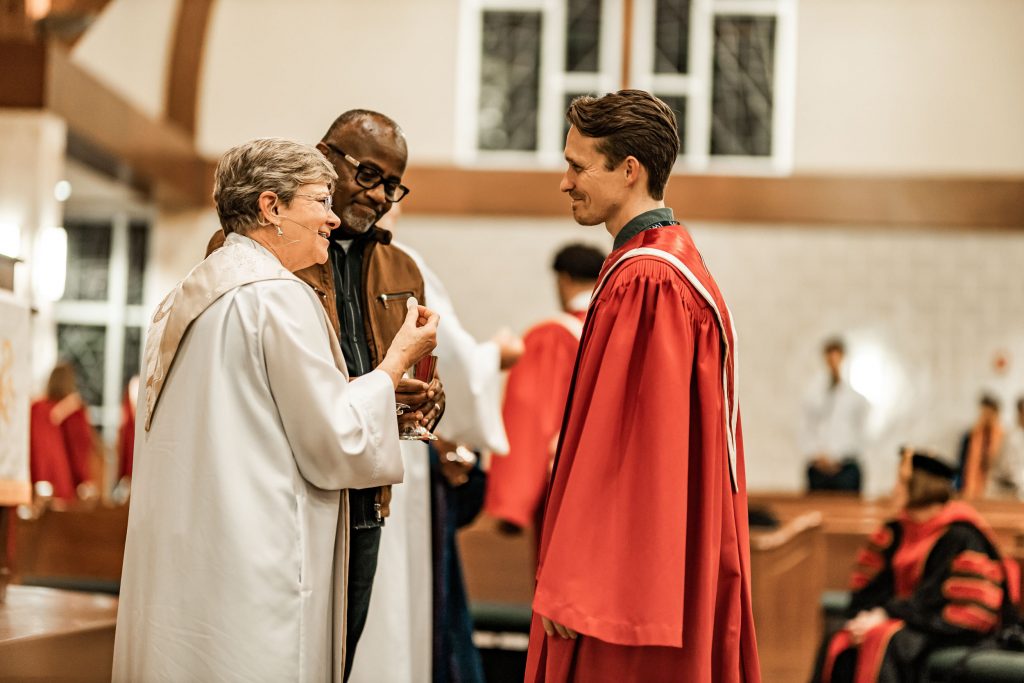
I lost my job last month.
I knew I would lose it two months prior. In fact, it was years of a slow fade and a slow demise that led to the closing of the University where I worked for 21 years. I prepared myself for this possibility.
But when it came, when it was real, it shocked my system.
What does job loss have to do with worship?
The Psalms, the songs of the Bible, often worship God with words that state all is not right with the world. “How long, Oh Lord?” Is an oft-repeated phrase, and I sometimes find myself in Psalm 13 for months.
The loss of my job makes me feel like all is not right with the world. I’ve entered a liminal space—a space where I am not what I was and not yet what I will be. I don’t know how long I will be unemployed, how long I will be in this unchosen liminal state. Unemployment, infertility, chronic illness, singleness when one desires marriage—all are unchosen liminal states. Even chosen liminality, like engagement, education, or pregnancy are characterized by ambivalence, anxiety, and more.
As I worship while liminal, I go to the Psalmist’s words. More than that, I think about embodying the losses and gains of liminality. I think about rituals.
I know, for many of us “ritual” is a bad word.
“It’s not ritual or religion!” we say, “It’s a RELATIONSHIP!” Here’s a video on why I prefer the term “ritual” to describe worship. “Ritual” situates what we do in the broader spectrum of what humans have always done. Humans are ritualizers. Rituals help us in so many ways. Here’s another video showing how rituals help us in times of waiting.
So, how do I worship and make meaning in my moment of liminality? How do I embody the loss, gains, ambivalence, and anxiety? How do I mark progress on my journey even before I land a new job? I write about this in my new book, Meaning in the Moment: How Rituals Help us Move Through Joy, Pain, and Everything In Between.
I am still forming my current liminal rituals, but let me tell you how I started. First, I marked the loss. I need to tell you a little about the slow fade to the closure of the university for you to understand how I marked it. Back in 2020, we consolidated from two campuses into one. I had worked on the suburban residential campus that closed. I was sad to leave where I had studied, lived, and worked. My ritual helped me transition.
I bought two dozen red roses and walked around the closing campus, telling stories to my family and leaving rose petals for the memories at each special spot. The red petals were my love for those places. We worshiped God, grateful for the good. This ritual helped me say goodbye.
I dried the second dozen and hung them by my kitchen window. They symbolized my hope for more greatness at our City campus. They hung there for three years.
The day my job ended, I burned those dried red roses. It wasn’t an angry act; rather, it was a final act. I voiced to my family what I didn’t burn, like the good. I voiced what I burned, like the hope for prosperity in the City, and the dream of emeritis.
In that final act, that ritual I let go of the past and opened the door to the next chapter of my life.
Worship isn’t only about what we do on Sunday mornings, but it pervades all of life. Our worship words and rituals have the potential to help us in liminal states. Our lives, not just the life of God, are part of our worship. Meaning in the Moment contains “Right Now,” “With Friends,” and “At Church” rituals. The chapter on middles has three example rituals. Here’s one that I invite you to try if you are liminal like me:
“Liminal Times”
Breathe deeply and bring yourself into the present moment.
Out loud and to God, state the ambiguity that is troubling you. It can be as simply as “God, I have lost what once was and I do not know what is next.”
Put both feet solidly on the floor and press them down. Concentrate on the feeling of stability and grounding this brings. Bring to mind several examples of stable elements in your life such as food, housing, relationships, a salary. Observe these elements one by one, seeking to stand on them with your feet as you press down.
Hold a beverage (preferably water). As you hold it, note the stability and solid nature of the cup. Ponder the gift it is to have access to clean water and how water sustains your life and body. Thank God for the gift of water.
Drink. As you drink, state your trust in God as provider. “Lord, as you have given me this water to sustain me, I trust that you will provide what I need.” You may state this many times at once or several times each day.
Breathe deeply and allow trust in God to permeate your being.
Content taken from Meaning in the Moment by Amy F. Davis Abdallah, ©2023. Used by permission of Brazos Press.
